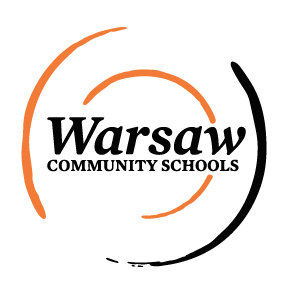Warsaw, IN- At the Monday, Feb. 20 regular board meeting, the Warsaw Community Schools’ (WCS) Board of Trustees approved several equipment purchases for the Warsaw Area Career Center. These investments are necessary in order to ensure that students graduate with experience and training necessary to contribute to the local workforce and industry in roles such as a robotics engineer, IT specialist or CNC programmer. Graduating students will have technical skills training on automated equipment and robotic arms, while also having a competitive advantage in the local industry.
WCS realizes that there is an immediate need for a skilled workforce and that it is of utmost importance to continue providing experiences for students to better understand modern manufacturing. Industry 4.0 is a new method of factory production which uses advanced technology like computers, robots, and sensors to make products faster, cheaper, and better. This technology can help factories work more efficiently and make things that are more customized to what people want; it's a smarter way of making things. Industry 4.0 ties together technical skill jobs, with the new digital and technological demands of a highly regulated, automated and competitive industrial environment.
WCS Superintendent Dr. David Hoffert shared, “WCS is blessed to have our Warsaw Area Career Center (WACC) within our local schools and community. The WACC is a top rated career center within the state of Indiana. A large purpose of the career center programming is to prepare students for their future careers. Our local community is the Orthopedic Manufacturing Capital of the World, and thus many of the skills and classes help prepare students for the local industry needs. One of those major needs is in the machining labs. WCS is investing in considerable updates to our labs to ensure our students and their training is happening on industry ready equipment. This investment is a first step in the upgrades.”
WCS will be investing in four manual precision lathes for the WACC’s machining courses: Principles of Precision Machining, Precision Machining Fundamentals and Advanced Precision Machining. These purchases are the first phase of intended updates in order to teach students necessary skills for the manufacturing and machining workforce.
The WACC was also recently awarded $120,000 through the competitive Reserve Perkins grant, which is a federal grant that was awarded to only eleven Indiana schools. Using the grant funds, the WACC seeks to provide staff professional development on advanced manufacturing and effective project-based learning; develop high-quality, engaging curriculum; acquire cutting edge machinery for the Industry 4.0 classrooms; and develop a mentoring program for students.
Ben Barkey, WACC principal, shared, “Industry 4.0 is heavily used within the community. Any manufacturing skills and experience that we can provide for our students will help the employment pipeline. Students in this pathway will have the opportunity to understand the importance of using technology to efficiently manufacture products.”
Current instructor, Zach Harding, was a benefactor of a machine trades program over 20 years ago. After attending college at Grace College, he obtained an MBA and was hired as a senior quality manager and plant manager.
Zach adds, “Today, I have the privilege of using my experiences to educate young adults. This equipment is critical to students having a competitive edge in the local economy. Hands-on training allows for a deeper understanding of concepts and provides local employers with more knowledgeable team members. These young team members have the potential to become future leaders, just like I did.”
With the Reserve Perkins grant funding, the WACC will be able to purchase cutting edge machinery for the Industry 4.0 classrooms. This equipment will include a programmable logic controller, four CNC mills, Fanuc and 4.0 accessories. The equipment will be used in several Industry 4.0 pathway classes: Principles of Industry 4.0; Robotics Design and Innovation; Smart Manufacturing Systems; and Industry 4.0 Smart Manufacturing.
In addition, because the WACC seeks to equip all WCS students with the skills to reach their highest potential, they are developing a mentoring program to help assess students’ interests; discuss how various pathways may help them to achieve their dreams; and assist students with navigating course alignments/registrations, dual credit enrollments, and post-secondary planning.
Dr. Hoffert concluded, “We are very thankful to our local industry partners and local granting organizations who help us to continue these conversations and provide necessary upgrades on behalf of local students and community.”
Photo Provided: Dorian Baker with the WACC’s Robotic Arm

